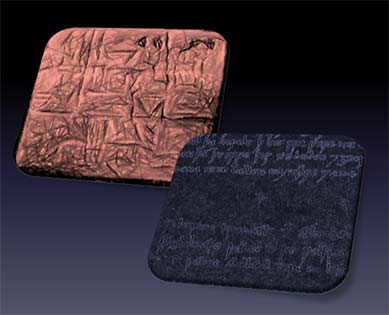Digital Humanities Network Lecture Series: Trust and Authority in the Digital Age
- Dates
- Tuesday 25 May (00:00) - Tuesday 22 June 2021 (00:00)
The UoB/Trinity College Dublin Digital research partnership series of lectures on the theme of 'Trust and Authority in the Digital Age'.
Our research network has been working for some time researching one of the key central questions in the digital world: how can we know whom and what to trust when there is so much information available? Our distinguished speakers addressed this theme from a variety of disciplinary perspectives in the elcture series delivered May-June 2021. All talks are available to view via the links below
The Illusion of Grandeur: Trust and Belief in Cultural Heritage Linked Open Data
Rob Sanderson, Yale University
18:00-19:00 25 May
The rich and real promise of Linked Open Data in the cultural heritage domain is as the foundation of a knowledge ecosystem where institutions and individuals can share information to be used by a variety of engaging applications. For that promise to be realized with full attention to inclusivity, we must also have an understanding of the principles and mechanics by which different, diverse actors in the ecosystem trust each other to have truly symbiotic relationships, rather than merely plundering and monetizing others’ work. This presentation will explore the question of trust in a digital, distributed age across three interrelated aspects: how do we trust that the institution said it; how do we trust what they said is correct; and how do we trust that our interpretation is what was intended?
A recording of this talk is now available to view here.
Uncertainty in Manuscript Technologies and the Potential of Computational Tools
18:00-19:30, 8 June
 Those who work with early technologies of text deal with the most comprehensive set of uncertainties about the principal objects of their study. In this lecture, I’ll talk about the nature of these uncertainties and the kinds of expectations that scholars might realistically have of computational and digital tools and methods.
Those who work with early technologies of text deal with the most comprehensive set of uncertainties about the principal objects of their study. In this lecture, I’ll talk about the nature of these uncertainties and the kinds of expectations that scholars might realistically have of computational and digital tools and methods.
It is urgent that humanists working with cultural heritage objects—by which I mean all those things in archives, museums, special and private collections, galleries—address how we can best express current challenges and opportunities. How can we persuade potential collaborators to engage in research on these objects at scale? Broaden the focus of our collective efforts to include a greater appreciation of the importance of the human record? To lay out clearly what’s at stake?
Moving forward will take more than one scholar, one team, one institution, one tradition of writing: it will take a multitude of partners and the ability to scale up research and to deploy automated processes beneficially; and it requires an extension of the global archive to amplify the rich and varied voices that make up the human experience.
A recording of this talk is now available to view here
Trust, Authority and the Automation of Expertise
18:00-19:30, 22 June
How can we know who or what to trust? This lecture addresses the central theme of the series by asking what happens to trust when we no longer directly engage with the processes that give us this information or categorize it - as knowledge, rumour, conspiracy, fact, for instance, nor with those processes that authenticate, or ground, or contextualize what is given. The starting point therefore is that a particular kind of automation of expertise has contributed to the contemporary epistemic crisis - an incredulity towards experts and processes of knowledge production and a reliance on ‘my truth’ as ‘the truth’ or as the only truth that matters. The question I explore here is how will this develop further as automation processes accelerate through AI and machine learning and new kinds of automated expertise – and as new experts - arise? These issues are taken up here in part through an exploration of developments in synthetic writing. How will the automation of the word inform new generations of artificial experts, supplement the authority of artificial agents or helpers, and alter the ecology of human/machine knowledge production – for good or for ill, but also for whom?
A recording of this talk is now available to view here.